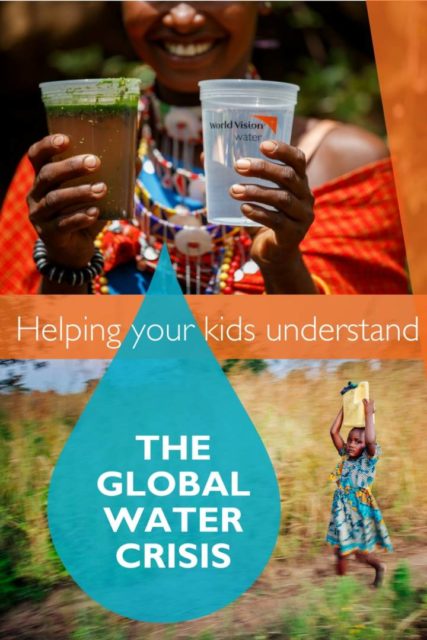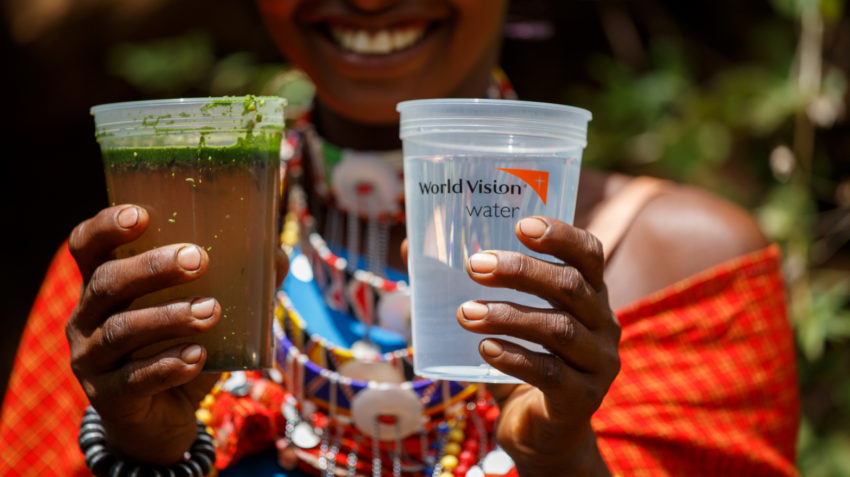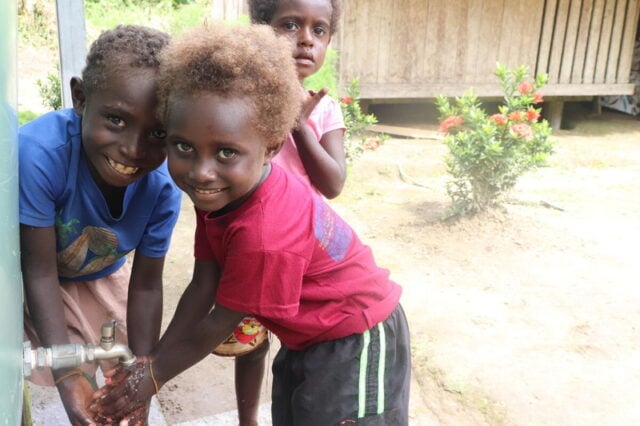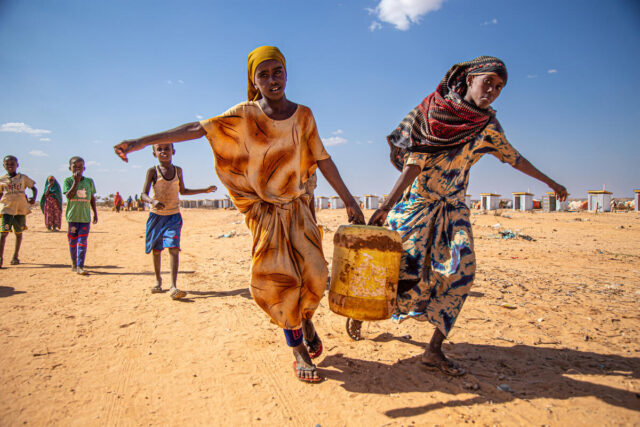Helping our children develop empathy for others is an important part of parenting. According to Harvard researchers, identifying feelings and talking about what children deal with in other parts of the world can help our kids develop empathy for people in need. Talking also helps our kids gain an appreciation for the privileges we have simply because we live in a developed country. Get tools and ideas for how to talk to your kids about the global water crisis and help them develop empathy for people in need.
Explaining the global water crisis to my daughter
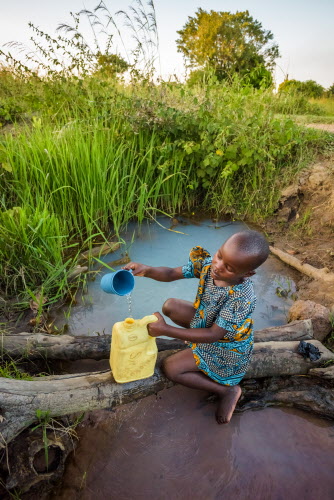
I remember the day our copy of the Spring 2018 World Vision magazine arrived in the mail. The cover showed 5-year-old Grace in Uganda getting water out of a dirty pond. My (then) 3-year-old daughter, Ruby, looked at the photo and asked, “What is she doing?” We were standing in our newly remodeled kitchen, where Ruby can get her own cup, and walk over to the refrigerator and get filtered water for herself if she’s thirsty. (And then promptly spill it, but that’s beside the point.)
“Well,” I explain, “this little girl is just a couple years older than you, and she can’t just walk over to the fridge to get clean water at her house. She has to walk a long way and fill her jug with water from this pond and carry it all the way back to her house. I’ll bet that’s a lot of work.”
“Yeah,” says Ruby.
“That water doesn’t look very clean, does it?” I say. “Would you want to drink that water?”
“No,” she says.
“That water has some bad bugs in it that make her sick. That makes me feel sad,” I say. “I think that makes God feel sad too.”
“I feel sad too,” says Ruby.
“Do you think we should do something to help?” I ask.
“Yeah,” says Ruby.
Getting the global water crisis conversation started
Start by looking at photos about the water crisis and then watching this video with your kids, and then ask them a few questions.
- How would life be different for you if we didn’t have safe water to drink right here in our home?
- Can you help me make a list of all the ways we use water throughout the day? (e.g., brushing teeth, bathing, washing dishes, etc.)
- How would you feel if you had to spend hours walking every day to get water for us to use here at home? Imagine having to spend so much time getting water that you didn’t have time to go to school. How would that make you feel?
- What if we didn’t have enough clean water to wash your clothes or give you a bath? Do you think you might get stinky? How would you feel about going to school or church in dirty clothes?
Taking it one step further
Watch this 13-minute video together. In it, World Vision writer Kari Costanza walks for water with Sabina in rural Kenya and gains a serious appreciation for clean water after carrying 70 pounds of dirty water back from a river that is miles away.
DIY water walk (easy effort): The average distance women and children in developing countries walk for water is 6 kilometers (about 3.7 miles) a day. Depending on the age of your kids, map out a 6-kilometer walk or find a trail nearby and turn around at 1.82 miles. It’s even better if you can carry a bucket full of water back from the halfway point. And if your kids are preschoolers, take a wagon along on the walk to help carry the water and give little ones a ride if they get too tired.
Global 6K for Water (medium effort): Another great option would be to sign up your family to walk the Global 6K for Water together on May 17, 2025. Families around the world will walk or run 6 kilometers to raise awareness about the global water crisis and to help children in communities that need clean water. Some people are adding a challenge to the 6K by carrying a jerrycan full of water the whole way. Learn more about the Global 6K.
